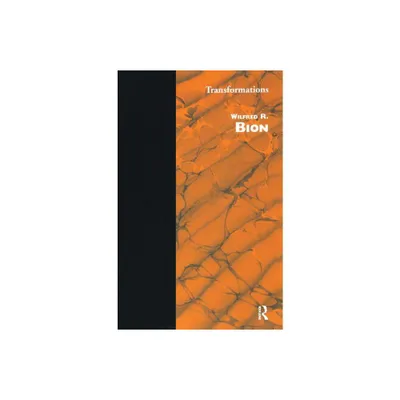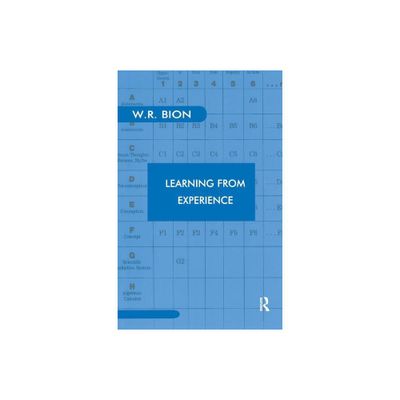Home
Introducing the Clinical Work of Wilfred Bion
Loading Inventory...
Barnes and Noble
Introducing the Clinical Work of Wilfred Bion
Current price: $160.00


Barnes and Noble
Introducing the Clinical Work of Wilfred Bion
Current price: $160.00
Loading Inventory...
Size: Hardcover
*Product Information may vary - to confirm product availability, pricing, and additional information please contact Barnes and Noble
Introducing the Clinical Work of Wilfred Bion
takes a fresh approach to this much revered analyst, focusing on the unique contributions to be found in his analytical and supervisorial work and developing of received Kleinian theory.
Starting from his childhood in India and his schooldays, through his experience in the Great War and later life, this book considers the way in which Bion’s personal experience informed his later work as an analyst. Aguayo looks at how Bion’s loyalty to Kleinian theory, especially in his work on psychosis, and how the subsequent in-fighting rife within the psychoanalytic community impacted his approach. Aguayo also considers the epistemological work done by Bion in the early 1960s while President of the British Psychoanalytical Society, as well as his seminars from Los Angeles and Buenos Aires. The book concludes by proposing that the spate of recently published Clinical Seminars, fresh with new clinical examples from Bion’s analytic and supervisory work, now represent a potential for a ‘new wave’ of interest among analysts and scholars alike. Aguayo also engages the work of important contemporary specialists in Bion studies, such as: Ron Britton, Giuseppe Civitarese, James Grotstein, Robert Hinshelwood, Betty Joseph, John Steiner and Rudi Vermote.
As Bion’s clinical work continues to inform contemporary psychoanalysts, this book will be essential reading to all analysts interested in Bion’s work and the legacy it holds in contemporary psychoanalysis.
takes a fresh approach to this much revered analyst, focusing on the unique contributions to be found in his analytical and supervisorial work and developing of received Kleinian theory.
Starting from his childhood in India and his schooldays, through his experience in the Great War and later life, this book considers the way in which Bion’s personal experience informed his later work as an analyst. Aguayo looks at how Bion’s loyalty to Kleinian theory, especially in his work on psychosis, and how the subsequent in-fighting rife within the psychoanalytic community impacted his approach. Aguayo also considers the epistemological work done by Bion in the early 1960s while President of the British Psychoanalytical Society, as well as his seminars from Los Angeles and Buenos Aires. The book concludes by proposing that the spate of recently published Clinical Seminars, fresh with new clinical examples from Bion’s analytic and supervisory work, now represent a potential for a ‘new wave’ of interest among analysts and scholars alike. Aguayo also engages the work of important contemporary specialists in Bion studies, such as: Ron Britton, Giuseppe Civitarese, James Grotstein, Robert Hinshelwood, Betty Joseph, John Steiner and Rudi Vermote.
As Bion’s clinical work continues to inform contemporary psychoanalysts, this book will be essential reading to all analysts interested in Bion’s work and the legacy it holds in contemporary psychoanalysis.


















